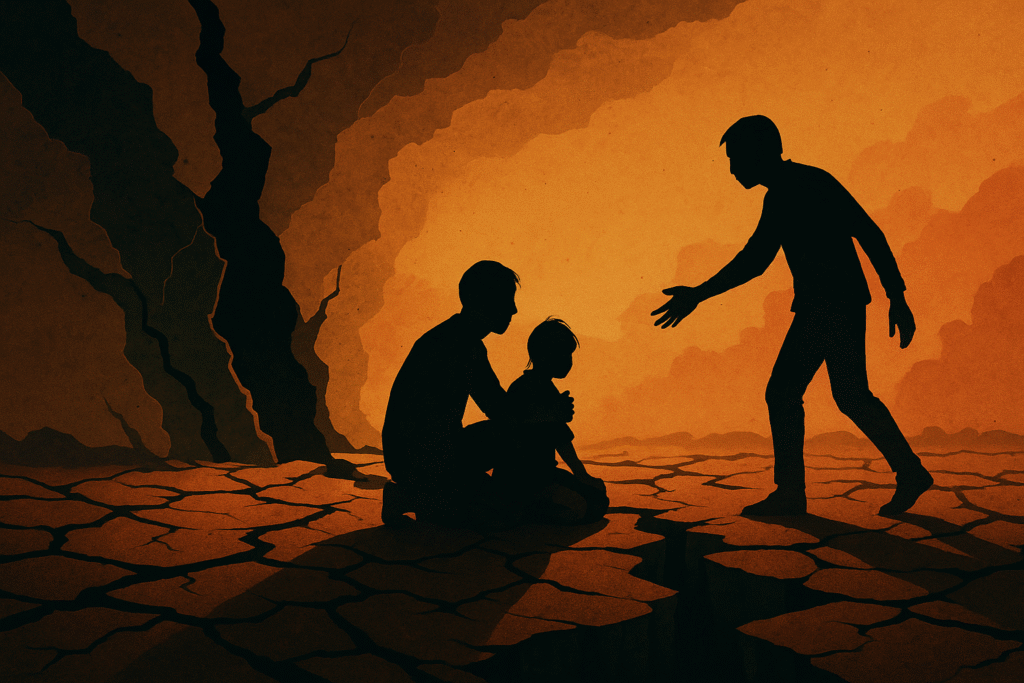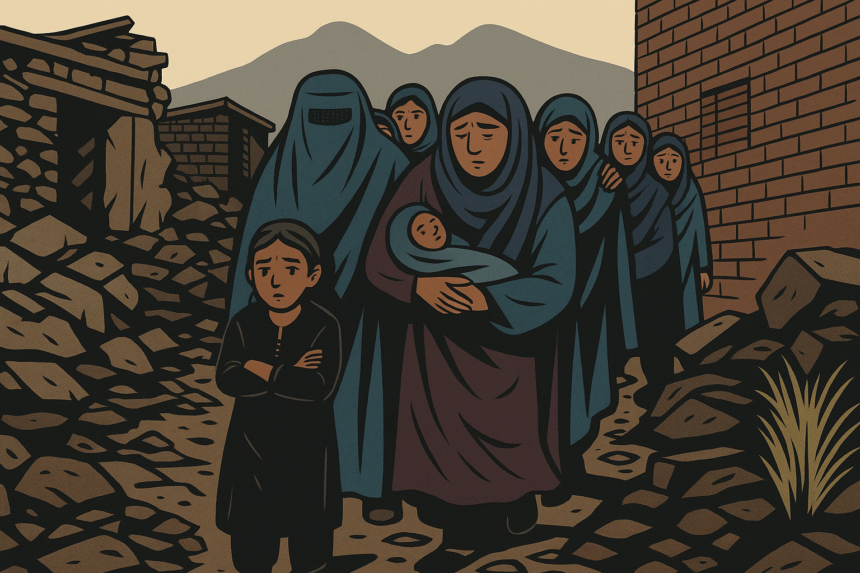Afghanistan earthquake kills over 1,400, injures thousands, and destroys more than 5,000 homes. Rescue efforts face hurdles amid devastation.
A Grim Morning in Afghanistan
The ground shook, homes crumbled, and life changed in a matter of seconds. On September 1, 2025, eastern Afghanistan was jolted by a 6.0 magnitude earthquake, turning entire villages into rubble. Sadly, over 1,411 people have died, while more than 3,124 were left injured. As if this heartbreak wasn’t enough, 5,412 homes collapsed, leaving thousands homeless overnight.
This isn’t the first time Afghanistan has faced such natural fury. Yet, each quake feels heavier because the country, already battling poverty and political turmoil, has little space left for another wound.
👉 Earthquakes don’t kill directly—the falling walls and collapsing roofs do. Sadly, most Afghan homes are made of mud and stone, making them extremely vulnerable.
The Epicenter: Kunar Province
The Taliban government confirmed that the Kunar province was the worst affected. Villages like Mazar Dara were flattened, with heartbreaking visuals showing families wandering through rubble, clutching their children and belongings.
Zabihullah Mujahid, a Taliban spokesperson, posted on social media that the losses were massive:
- Fatalities: 1,411
- Injured: 3,124
- Homes destroyed: 5,412
Rescue teams are trying to reach the remote areas, but mountainous terrain and destroyed roads are slowing them down.
Nights of Fear, Days of Rubble
The quake struck at night, when most families were asleep. Imagine being woken up not by an alarm clock, but by your ceiling falling in. That’s exactly what happened. Entire families were buried before they could even escape.
Survivors are now camping in open fields, exposed to weather and uncertainty. Children cry for food, parents look lost, and elders sit quietly, watching years of effort vanish into dust.
The Bigger Picture
Afghanistan isn’t new to such disasters. In 2022 and 2023, powerful quakes killed thousands. But this one feels heavier because the country is already in deep crisis. A fragile economy, international isolation, and ongoing humanitarian challenges have drained resources.
As UN’s resident coordinator for Afghanistan, Indrika Ratwatte, said:
We cannot afford to forget the people of Afghanistan who are facing multiple crises, multiple shocks, and the resilience of the communities has been saturated.
Translation: The Afghan people are tired. Their ability to bounce back is fading.
Why Is Afghanistan So Earthquake-Prone?
Afghanistan sits on a complex tectonic fault line, where the Indian and Eurasian plates collide. Basically, it’s like living above two restless giants constantly bumping into each other. Small quakes are common, but when the pressure builds up, disasters like this strike.
According to United States Geological Survey (USGS) (source), the region will continue to face strong seismic activity in the future. And without earthquake-resistant infrastructure, tragedies are almost guaranteed.
The Human Side of Numbers
Numbers can be cold. 1,411 dead, 3,124 injured. But let’s imagine:
- That’s 1,411 empty chairs at dinner tables.
- 3,124 people waking up in hospital beds, unsure if they’ll walk again.
- 5,412 families without a roof, staring at the sky and wondering, “What now?”
This is not just about stats—it’s about lives forever changed.
International Response: Slow but Needed
While some aid agencies have mobilized, large-scale global response is still crawling. Political dynamics complicate things, as many countries hesitate to work directly with the Taliban. Yet, humanity demands action beyond politics.
The Red Crescent and local NGOs are distributing food, water, and temporary shelters. But with such huge destruction, needs are far greater.
Can Afghanistan Recover?
Recovering from such devastation is not just about rebuilding houses—it’s about rebuilding hope. But here’s the problem: Afghanistan’s financial and governance systems are weak. Unlike countries with disaster relief funds, Afghanistan depends heavily on external aid.
Without quick international support, families could be stuck in makeshift shelters for months, even years. And with winter approaching, that’s a nightmare scenario.
A Punchy Reality Check
Earthquakes don’t care about politics. They don’t care if you’re rich, poor, Taliban, or civilian. When the ground shakes, everyone runs. Yet, when it’s time to recover, politics often overshadows people.
When the earth shakes, it reminds us—human lives matter more than borders or politics.
The Afghanistan earthquake is a tragedy, but silence won’t help. Share this story, talk about it, and push for global attention. Every voice matters in keeping humanitarian issues alive.
💬 What do you think? Should global aid bypass politics in times of crisis? Drop your thoughts below, and don’t forget to share this with friends—because awareness is the first step toward action.
Related Post Suggestion
👉 “Afghanistan Earthquake Update: 500 Lives Lost in Tragedy”













